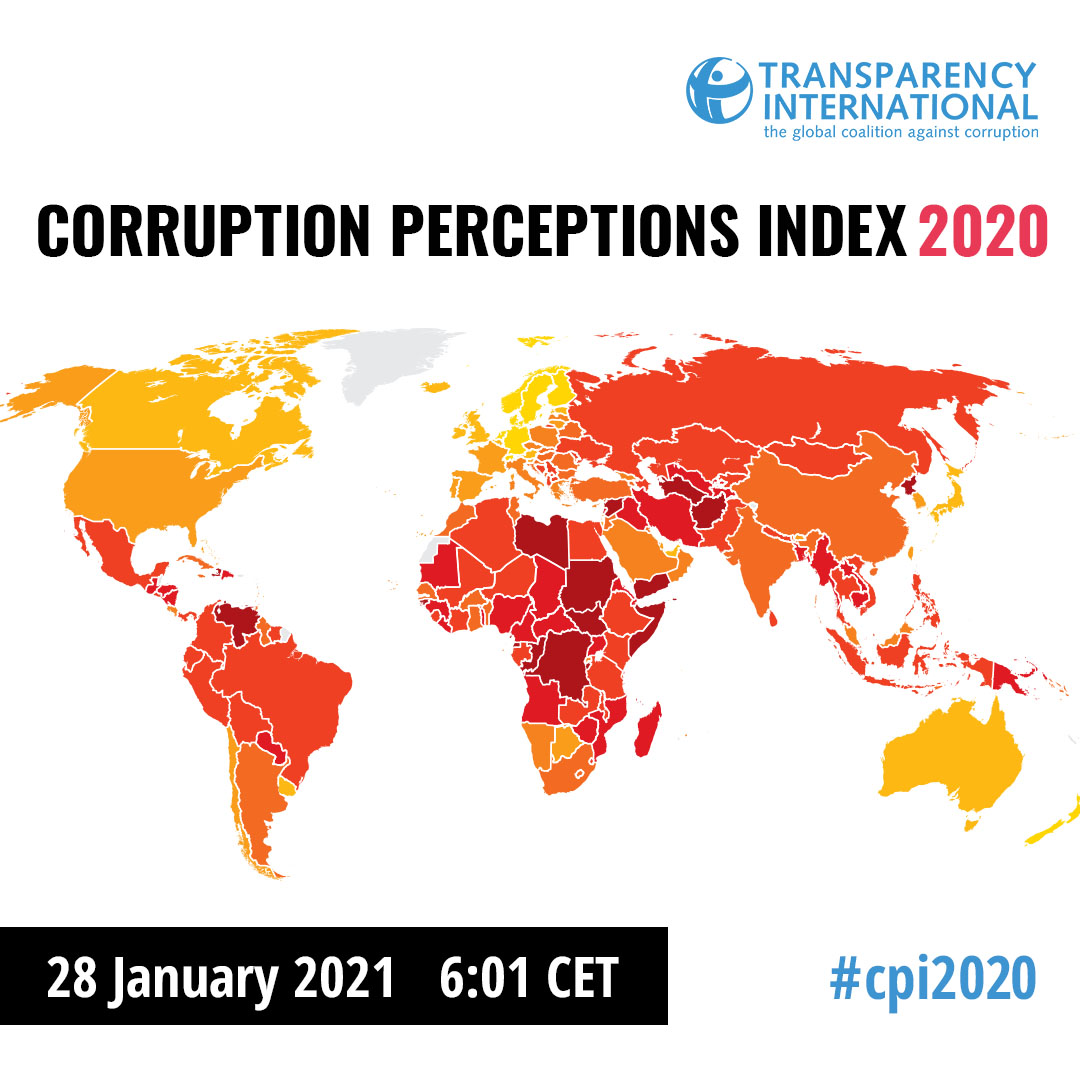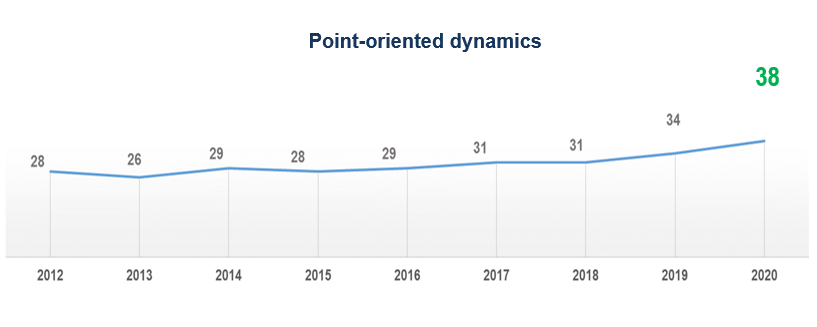Kazakhstan has risen by 19 positions, gaining 38 points for the first time in the Corruption Perceptions Index

Kazakhstan has for the first time received 38 points out of 100 in the Transparency International's 2020 Corruption Perceptions Index (CPI), ranking 94th out of 180 countries.
The country has improved on its previous best score reached in 2019 (34 points). Kazakhstan’s points tally has increased from 34 to 38 over the past year, which objectively demonstrates a stable positive trend in the assessment of Kazakhstan’s perception of corruption.
For comparison, for the first 7 years of the rating under the current methodology (2012 to 2018), the country improved its position only by 3 points (from 28 to 31), reaching 124th place.
In the last two years alone, Kazakhstan's score has increased by 7 points (from 31 to 38), improving its position in the ranking by 30 places (from 124 in 2018 to 94).


It should be noted that in the 2018 Strategic Development Plan of the Republic of Kazakhstan, the expected CPI result by 2025 was 35 points.
The country has firmly established itself in the group of states with a moderate level of perception of corruption. Countries such as Brazil, Serbia, Sri Lanka, Peru, and Suriname have similar indicators in the CPI.
Among the group of 19 states of Eastern Europe and Central Asia, Kazakhstan took the 6th place, behind Georgia, Armenia, Belarus, Montenegro, North Macedonia and Turkey, and significantly ahead of other CIS countries.
According to Transparency International, the dynamic improvement of Kazakhstan in the CPI rating against the background of a global pandemic and threats to the sustainable development of democratic institutions in different parts of the world indicates the country's ongoing work in combating corruption.
The current improvement is due to a number of factors.
First of all, this is the consistent course of political modernisation, increasing the role of civil society, strengthening public scrutiny, ensuring greater openness, transparency, accountability and public focus of the state apparatus, including large-scale work to digitise public services.
The political will to eradicate corruption plays a significant role in the context of the three packages of presidential anti-corruption reforms adopted over the past year and a half.
This includes the culture of resignations and personal disciplinary responsibility for the corruption of junior staff, the restoration of anti-corruption expertise, the introduction of anti-corruption compliance in national companies, a complete ban on receiving any gifts by civil servants and the possession of bank accounts in foreign jurisdictions, the expansion of the composition of corruption crimes, cancellation of parole for persons convicted of corruption, tougher punishment for bribe-givers and intermediaries in bribery, increased responsibility of employees of the quasi-public sector.
Measures to support business, including a long-term moratorium on inspections, tax incentives for micro and small businesses, measures to deregulate the economy, as well as systematic anti-corruption support from the Anti-corruption Agency, are also positively reflected.
The transition of the Agency to a comprehensive work based on a rational combination of preventive and criminal law instruments, large-scale promotion of the ideology of integrity, and effective partnership with civil society institutions, as well as comprehensive interaction with international organizations and rating institutions, has acquired substantial importance.